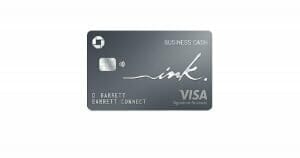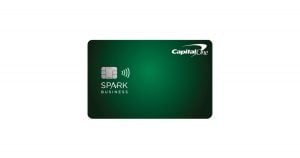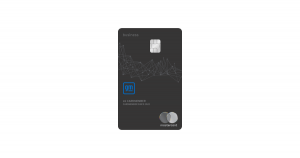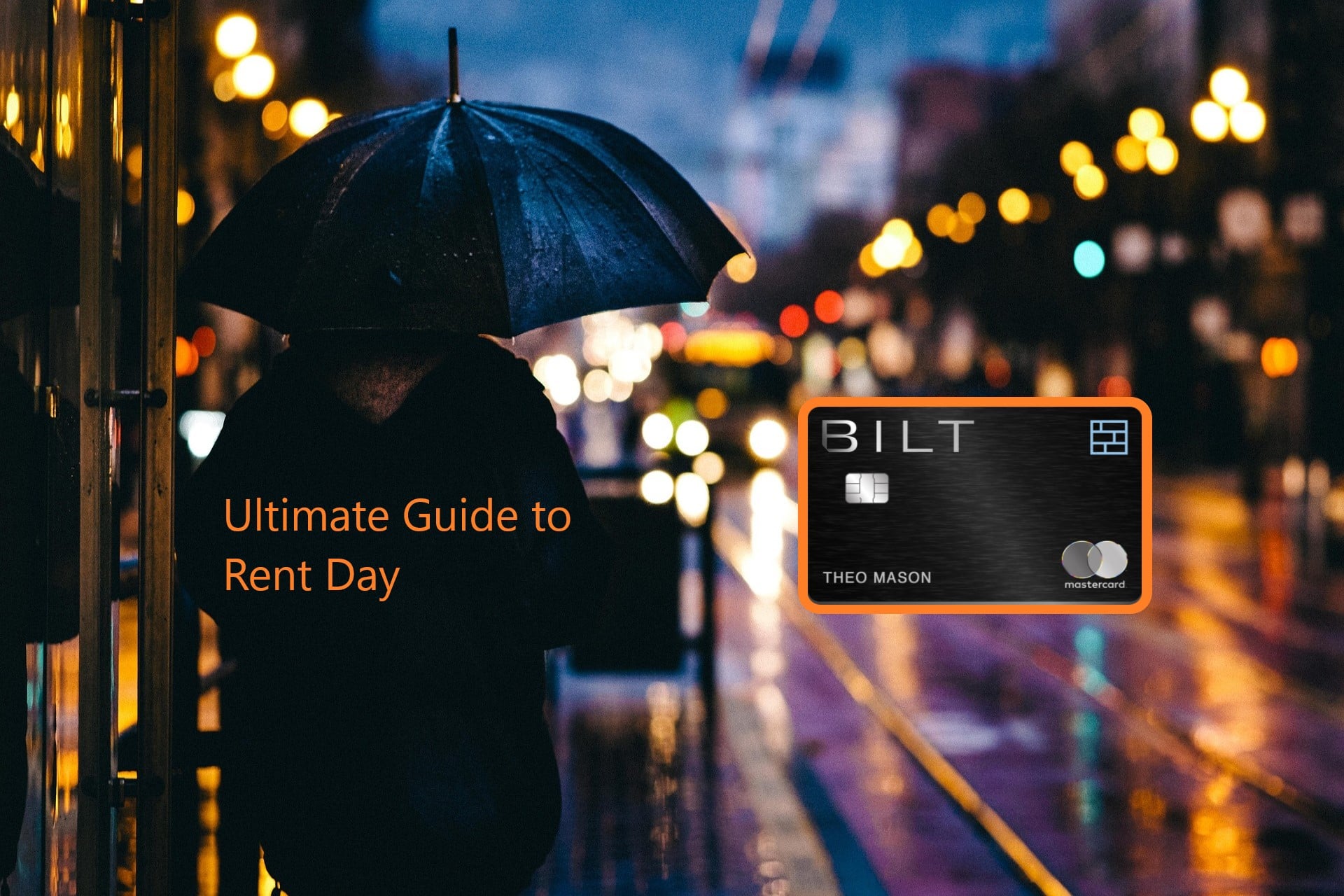Last updated on January 30th, 2024
The life of the freelancer and solo entrepreneur is one of constant hustle. Whether it’s trying to land a deal or attempting to devise the next big thing, a little financial help is always welcome. Business credit cards are a great way to finance your freelance gigs while earning lucrative rewards. If you have a side hustle, why not apply for a business credit card to help manage your expenses? Here’s why freelancers should consider getting one:
Table of Contents
At a Glance
- Many freelancers can benefit significantly from business credit cards, thanks to bigger and more business-centric rewards and accounting software designed to help manage expenses.
- Because business rewards vary significantly, it is important to carefully examine the rates, fees, and bonus categories with each card you compare.
- Business credit card applications require greater transparency and information than consumer credit cards. Be prepared to do some legwork to ensure you qualify before applying.
- Always opt for business cards without an annual fee if you cannot make up for it with your card’s benefits and rewards.
What Are the Benefits of a Business Credit Card?
Business credit cards offer a variety of perks when compared to personal credit cards:
| Bigger sign-up bonuses | Many business credit cards come with more significant signup bonuses than personal credit cards. Some of the best business cards offer bonuses of 100,000 points or more after meeting a minimum spending requirement. |
| Unique spending categories | Business credit cards occasionally earn bonus points or miles for purchases in categories that personal cards don’t offer. Common bonus categories for business cards include office supplies, internet and telecommunications, advertising, shipping, and more. These categories may align better with your spending habits than other personal bonus categories. |
| Higher credit limits | Most small business credit cards come with substantially higher limits than personal cards. According to Experian, the average credit limit for a personal card is about $30,000; for a small business credit card; however, the average credit limit is $56,000. |
| Expense and spend management tools | Business cards come with a variety of business monitoring tools. These can help streamline your finances, track purchases, and even assist in writing off spending as a business expense. |
| Travel benefits | Some business cards do not charge foreign transaction fees, include a signup bonus worth a free flight after you spend a certain amount within the first few months of card membership, and more. |
Can a Freelancer Get a Business Credit Card?
Most people assume you need a physical location or an LLC to qualify for a business card. This, however, isn’t true. You need a registered business, but the qualifications of a “business” are surprisingly broad.
If you are a freelancer, you sell your goods on eBay or Amazon, or even teach music to local children, for example, you may qualify for a business credit card. If you engage in any work where you earn money – without being an employee for someone else – you probably qualify as having a business.
When Does a Business Card Make Sense for Freelancers?
A business card can be a powerful tool for freelancers looking to maximize their rewards and extend their cash flow. With a business credit card, you gain access to a revolving line of credit that can help you
manage cash flow gaps and unexpected expenses. This flexibility allows you to seize upon opportunities when they pop up and invest in your business without raiding your personal savings. Whether you need to purchase new equipment, start a new social media marketing campaign to build your brand, or cover travel expenses for client meetings, a business card provides the necessary funds to keep your freelance business running smoothly.
Many business cards offer additional perks and benefits that can directly contribute to your professional growth and personal comfort. These benefits may include travel insurance, purchase protection, extended warranties, or exclusive business-related discounts. Utilizing these exclusive features
can save time and money, allowing you to focus on what you do best – delivering exceptional freelance services to your clientele.
Let’s use an example to demonstrate how freelancers can benefit from business credit cards.
Sarah is a graphic designer looking to build her fledgling business. A business card could help Sarah invest in professional software and equipment. By leveraging the credit card’s cash back rewards, she could earn money while building her design portfolio and delivering high-quality work to her clients.
A freelance writer, John, could use his business credit card’s travel rewards to attend industry conferences and networking events. This would allow John the ability to expand his professional network, secure new clients, and ultimately increase his freelance income.
Pros & Cons of Business Cards for Freelancers
| Pros | Cons |
|---|---|
| Business credit cards help freelancers separate their personal and business expenses, making it easier to track and manage finance | Some business credit cards may require a personal guarantee, putting the freelancer’s personal assets at risk if the business is unable to repay the debt. |
| Using a business card responsibly can help freelancers build a strong credit profile for their business, which can be beneficial when seeking financing or other business opportunities in the future. | While rewards can be a benefit, managing and maximizing rewards programs can be time-consuming and may not always align with the freelancer’s business needs. |
| Business cards can provide freelancers with a financial buffer, allowing them to cover expenses during lean months or when awaiting client payments. | Like other credit cards, business credit cards can lead to debt, causing financial strain and high-interest payments. |
| Business cards often come with expense tracking tools and reporting features, simplifying tax preparation and financial reporting for freelancers. |
How to Apply for a Small Business Credit Card
If you fall into the category of freelancer, tutor, or any of the other types of businesses that you could operate by yourself, you will need to apply for a business card as a sole proprietor.
Typically, when applying for a business card as a sole proprietor, there isn’t much more information required than you’d expect to provide in a personal credit card application. There are, however, a few bits of information to be aware of:
| Info | Explained |
|---|---|
| ① The legal name and contact address of your business | Even if you don’t provide your personal information, you will need to provide all relevant contact information for your business, including the company’s legal name, any names your company is doing business under, and the mailing and phone contact information. |
| ② Basic information about your business | Most banks and lenders want to know some basic facts about your company. These facts include your industry type, the structure of your company and number of employees, and your annual revenue. |
| ③ Tax ID number |
Most business card applications require a tax ID number, which is the number the IRS uses to designate your company when you file your taxes. Many sole proprietorships have no employees – and never plan to hire additional help. Still, business credit card applications often ask for an Employer Identification Number (EIN). An EIN is basically an SSN for a business – it is the same as a tax ID. If you are a freelancer, tutor, run an online shop, or run some other solo venture, chances are you won’t need your EIN or tax ID. The IRS stipulates that an EIN is only necessary for those companies that:
|
| ④ Estimated monthly spend on the card | Lenders want to ensure that your business’ finances aren’t stretched too thin, so expect to answer basic questions about how much you – and your employees – typically place on credit cards each month. |
| ⑤ Personal credit history | If you need to provide a personal guarantee, expect to provide all relevant credit information for the primary account holder. This information includes full legal name, home contact information (phone number, mailing address, e-mail), and your Social Security Number. |
If none of these apply to your side hustle, congratulations – you will only need to provide your personal Social Security Number.
What Credit Score Do You Need?
Getting approved for a small business credit card generally requires a good credit score. If your personal FICO Score is 690 or above, you have a good shot at getting a small business card.
There are some secured business credit cards, but unless you are looking to establish a strong credit history for your company, they aren’t worth considering. The reason to avoid a small business secured card is that they require a much larger minimum deposit than regular secured cards – making them suitable for larger companies with a good deal of fluid capital.
What Are the Most Important Things to Look at Before Applying for a Business Credit Card as a Freelancer?
Business credit cards offer a ton of value for freelancers who plan on using them correctly – but what exactly should you keep an eye out for? Here are the most important things to look at when evaluating a new business credit card as a freelancer:
Look for Options with No Annual Fee
One of the biggest considerations you should take into account is the card’s annual fee. Business cards often carry an annual fee of around $95 to $99 for a good travel rewards business card, thanks to the ability to issue multiple (usually free) employee credit cards and pool points within a single corporate account. Because of that, these co-branded business cards are usually not recommended for freelancers – unless their cash flow is significant enough to justify that yearly charge.
Proprietary rewards credit cards from banks like American Express, Capital One, and Chase are another option for freelancers who want rewards but prefer to avoid an annual fee. Cards with names like Chase Ink, Capital One Spark, and Wells Fargo Signify typically offer streamlined rewards, lucrative sign-up bonuses, and, most importantly, no annual fees.
Make Sure You Fully Understand the Rewards Categories
It’s essential to always read the terms & conditions of a credit card’s rewards program before applying – especially for business credit cards. Business credit card rewards are often entirely different from personal credit cards, with a heavier emphasis on categories like office supplies, utilities and services, advertising, software, and others.
Always compare the rewards of any business credit card with a comparable consumer credit card to see which card better suits your needs. For example, those who work from home might find significantly lesser value in a travel business card like the American Express Business Gold than the no-annual-fee Ink Business Cash® The latter earns 5% cash back on the first $25,000 spent in combined purchases at office supply stores and on internet, cable, and phone services each account anniversary year. It also earns 2% cash back on the first $25,000 spent in combined purchases at gas stations and restaurants each account anniversary year (and 1% back on everything else) – far more suited to a work-from-home freelancer.
Here is an example of what to look at with different types of business cards:
 Ink Business Cash® Credit Card |
 Capital One Spark® Cash Select |
 GM Business Card™ |
|
| Issuer | Chase | Capital One | (Marcus) Goldman Sachs |
| Annual fee | $0 | $0 | $0 |
| Rewards | Earn 5% cash back on the first $25,000 spent in combined purchases at office supply stores and on internet, cable, and phone services each account anniversary year, 2% cash back on the first $25,000 spent in combined purchases at gas stations and restaurants each account anniversary year, and 1% back on all other purchases. | Earn unlimited 1.5% cash back for your business on every purchase, everywhere, no limits or category restrictions. Plus, earn unlimited 5% cash back on hotels and rental cars booked through Capital One Travel. | Earn 5% back in Earnings on eligible GM dealership parts, accessories, or service purchases, 3% in Earnings on purchases at gas stations, restaurants and office supply stores, and 1% on all other purchases |
| Welcome offer value | ~ $750 | ~ $650 | ~ $750 |
| Intro APR | 0% for 12 months on purchases | N/A | 0% for 12 months on purchases |
Seek the Best Welcome Offers
Business credit cards are known for huge welcome and sign-up bonuses – savvy freelancers know this fact. These welcome bonuses require a much greater expenditure than you would expect from a personal credit card but also come with significantly larger bonuses for reaching those goals. Freelancers can benefit from these lofty sign-up bonuses if they have existing plans to use their new business cards to invest in hardware, software, or any other office and business upgrades you might be considering.
Business Controls to Help You Run Your Business
Just because you are a freelancer doesn’t mean you aren’t a business. After all, if you weren’t, the banks wouldn’t let you apply for a business credit card, right? And because of that, business cards make perfect sense to freelancers thanks to the impressive business controls and account management tools they provide.
Business cards come with a variety of business monitoring solutions. These can help streamline your finances, track purchases, and even assist in writing off spending as a business expense. Look for business cards with features like expense tracking, which can prove invaluable during tax time as it can help you streamline your business expenses and decrease your overall tax liabilities.
Conclusion
So, should you consider a small business credit card for your side gig? If you qualify, the answer may be “yes.”
As a freelancer without an LLC, applying for a business credit card can be a great way to separate your personal and business expenses, build your credit score, and take advantage of rewards and perks. However, it is important to consider the factors involved and take the necessary steps to ensure a successful application and responsible card use going forward.
The key takeaways to think about before applying for a business card are:
- Can you meet the spending requirements for any signup bonuses?
- Do the bonus categories fit into your spending habits better than a personal credit card?
- Will you make use of the business management tools included with the card?
- Do you plan to write off some of your purchases as a business expense?
- Do you mind tying your credit score in with your business ventures?
You’ll know if a business credit card is right for you once you answer these questions. From there, check out our Business Credit Cards page to find the perfect one to fit your needs.
Related Article: 4 Top Business Cards You’ve Never Heard Of
Editorial Disclosure – The opinions expressed on BestCards.com's reviews, articles, and all other content on or relating to the website are solely those of the content’s author(s). These opinions do not reflect those of any card issuer or financial institution, and editorial content on our site has not been reviewed or approved by these entities unless noted otherwise. Further, BestCards.com lists credit card offers that are frequently updated with information believed to be accurate to the best of our team's knowledge. However, please review the information provided directly by the credit card issuer or related financial institution for full details.



